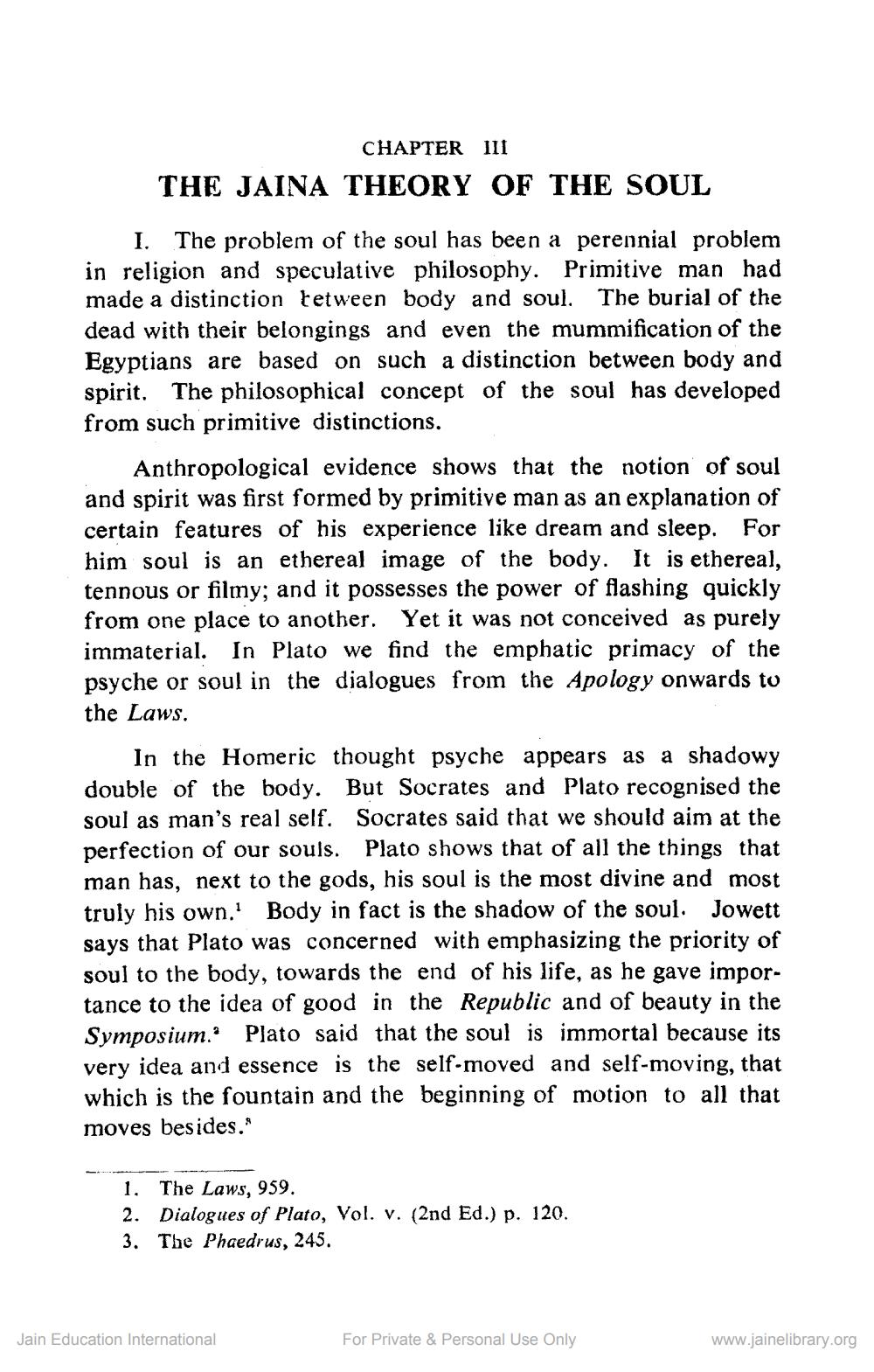________________
CHAPTER III THE JAINA THEORY OF THE SOUL
I. The problem of the soul has been a perennial problem in religion and speculative philosophy. Primitive man had made a distinction between body and soul. The burial of the dead with their belongings and even the mummification of the Egyptians are based on such a distinction between body and spirit. The philosophical concept of the soul has developed from such primitive distinctions.
Anthropological evidence shows that the notion of soul and spirit was first formed by primitive man as an explanation of certain features of his experience like dream and sleep. For him soul is an ethereal image of the body. It is ethereal, tennous or filmy; and it possesses the power of flashing quickly from one place to another. Yet it was not conceived as purely immaterial. In Plato we find the emphatic primacy of the psyche or soul in the dialogues from the Apology onwards to the Laws.
In the Homeric thought psyche appears as a shadowy double of the body. But Socrates and Plato recognised the soul as man's real self. Socrates said that we should aim at the perfection of our souls. Plato shows that of all the things that man has, next to the gods, his soul is the most divine and most truly his own.' Body in fact is the shadow of the soul. Jowett says that Plato was concerned with emphasizing the priority of soul to the body, towards the end of his life, as he gave importance to the idea of good in the Republic and of beauty in the Symposium. Plato said that the soul is immortal because its very idea and essence is the self-moved and self-moving, that which is the fountain and the beginning of motion to all that moves besides.
1. The Laws, 959. 2. Dialogues of Plato, Vol. v. (2nd Ed.) p. 120. 3. The Phaedrus, 245.
Jain Education International
For Private & Personal Use Only
www.jainelibrary.org




